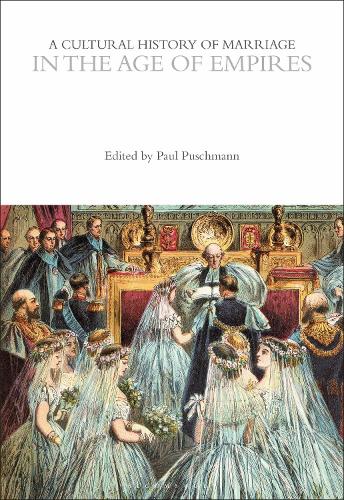
A Cultural History of Marriage in the Age of Empires
(Hardback)
Publishing Details
A Cultural History of Marriage in the Age of Empires
By (Author) Dr Paul Puschmann
Bloomsbury Publishing PLC
Bloomsbury Academic
30th December 2021
United Kingdom
Classifications
Tertiary Education
Non Fiction
Social and cultural history
Sociology: family, kinship and relationships
306.8109
Physical Properties
Hardback
256
Width 172mm, Height 248mm, Spine 20mm
607g
Description
During the age of empires (18001900), marriage was a key transition in the life course worldwide, a rite of passage everywhere with major cultural significance. This volume presents an overview of the period with essays on Courtship and Ritual; Religion, State and Law; Kinship and Social Networks; the Family Economy; Love and Sex; the Breaking of Vows; and Representations of Marriage.
Using this framework, this volume explores global trends in marriage. In nineteenth-century Western Europe, marriage was increasingly regarded as the only way to reach happiness and self-fulfilment. In the United States former slaves obtained the right to marry, leading to a convergence in marriage patterns between the black and white populations. In Latin America, marriage remained less common, but marriage rates were nevertheless on the rise. In African and Asian societies, European colonial powers tried to change indigenous marriage customs like polygamy and arranged marriages, but had limited success. Across the globe, in a time of turbulent political and economic change, marriage and the family remained crucial institutions, the linchpins of society that they had been for centuries.
Author Bio
Paul Puschmann is Postdoctoral Researcher at the Centre for Sociological Research at Radboud University, the Netherlands. He is the author of Casablanca: A Demographic Miracle on Moroccan Soil (2011).
